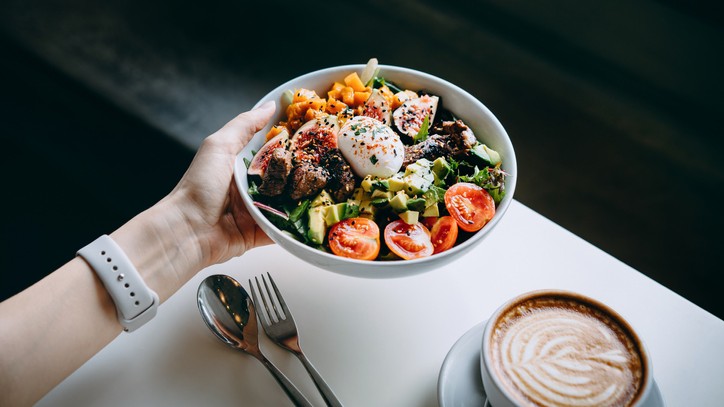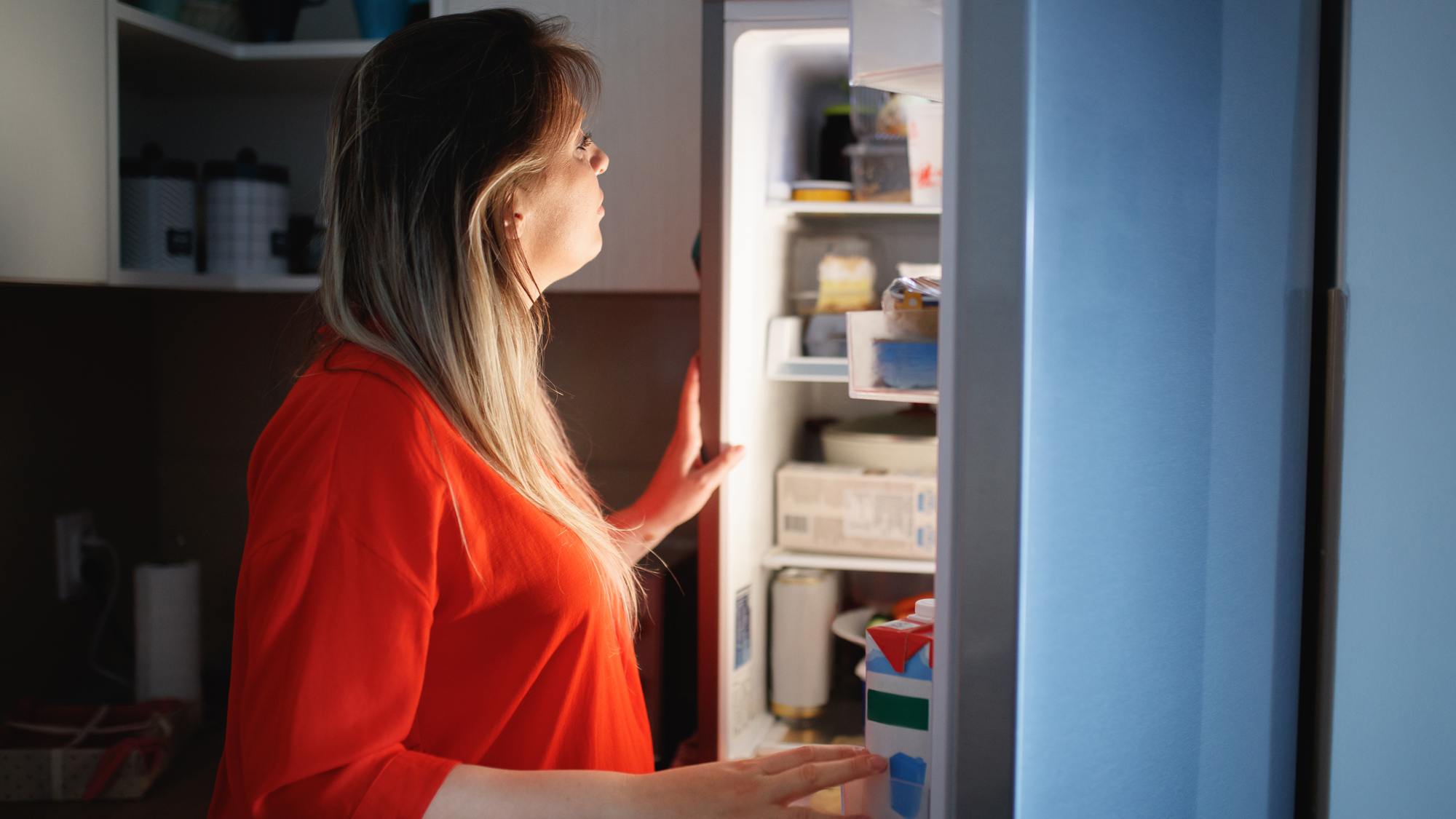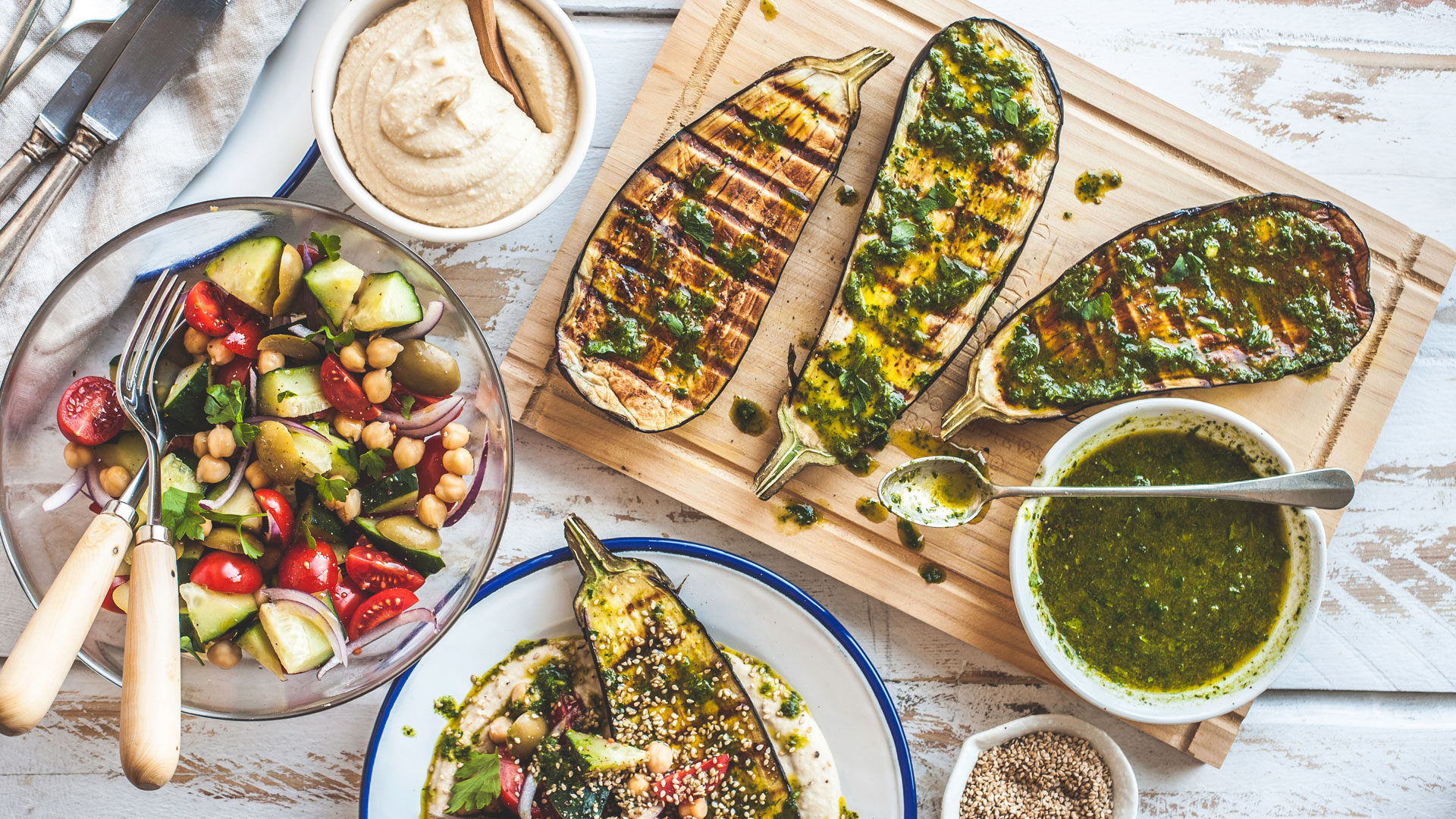The most common weight loss mistakes and how to avoid them
Struggling to shed those extra pounds? You may be making these weight loss mistakes


Start your week with achievable workout ideas, health tips and wellbeing advice in your inbox.
You are now subscribed
Your newsletter sign-up was successful
Whether you want to drop a few pounds to feel healthier or shed a more significant amount for a medical reason, it's not always easy to lose excess weight. If you find yourself in a weight loss rut, then you may be making some of the most common weight loss mistakes.
In creating a healthy diet and exercise routine for weight loss, you may find yourself becoming overwhelmed by different pieces of advice online. Perhaps you've heard that intermittent fasting is a good tactic. Or maybe you've read that cutting out fruit can help reduce your sugar intake. Unfortunately, many of these common techniques don't always work in the long run.
To find out more, we chatted with a few nutrition experts to get some tips on avoiding these weight loss mistakes. Along with trying the best protein powder for weight loss, you could try implementing these tips to quickly see results.
1. You're not eating enough during the day – and overeating in the evening
A common mistake people make when trying to lose weight is to limit their food intake during the day. As Noom coach Ashley Bannister, MS RD LD, explains: "Not eating enough throughout the day often leads to overeating later or at night."
"Eating more of your calories later in the day rather than earlier in the day may make weight loss more difficult and challenging," adds Dr. Joan Salge Blake, EdD, RDN, FAND, nutrition professor at Boston University.
"The old adage, ‘eat breakfast like a king, lunch like a prince and dinner like a pauper’ may be the new mantra, as emerging research confirms the benefits of this eating pattern."
In one study by The Obesity Society, women who ate a high calorie breakfast rather than a high calorie dinner lost 19 pounds and twice as many inches from their waists.
Start your week with achievable workout ideas, health tips and wellbeing advice in your inbox.
"By skipping meals to lose weight, you will likely eat bigger portions later in the day and opt for quick convenient foods because your body will be signaling hunger," explains registered dietician Patricia Kolesa. "Eating consistently can lead to less hunger and longer term weight loss."

2. You're drinking too many calories
If you've created a healthy meal plan for yourself and you still can't seem to lose weight, you may be increasing your calorie intake by drinking. Many popular drinks, such as soda and wine, contain a surprising number of calories and can make weight loss harder to achieve. Even some takeaway coffees can contain over 500 calories with added syrups and sweeteners.
"To avoid this mistake, opt for low or no calorie beverages like water, seltzer water and non-fat milk in coffee," says Bannister. Our four iced coffee protein shake recipes can also give you a protein fix to stop you snacking between meals.
3. You're filling your plate with the wrong foods
A common weight loss error is to simply reduce how much you eat, without changing what you eat. According to the experts, reconfiguring how you build your plate of food is a better approach.
"An important waist trimming factor is to change the look of your plate," says Bannister. "For all of your meals, make half of your plate vegetables. Vegetables are full of fiber and water, so they are going to fill you up before they fill you out. Bulk up your plate with lower calorie, satisfying foods."

4. You're not chewing properly
Did you know that chewing can actually make a big difference to how you digest your food? After all, digestion doesn't begin in the stomach, it begins in the mouth.
As it turns out, many of us aren't actually chewing properly before swallowing. "Chewing your food longer breaks it down more, which helps your stomach digest it," explains Edibel Quintero, a registered dietitian. "Conversely, if the food is not chewed well enough, you not only eat more because the brain does not signal that you are full, but you also swallow much air, leading to bloating and pain."
5. You're not drinking enough water
Another common mistake is focusing too much on food and not enough on hydration.
"Because people often confuse a feeling of hunger with thirst, they eat when they don’t want to," says Quintero. "Drinking water will not only prevent this but will also suppress the appetite."
Why not arm yourself with the best water bottle to help you stay hydrated?

6. You're becoming fixated on fad diets
While fad diets may sound like the quick fix you've been looking for, they rarely give the results you hope they will because they often involve being overly restrictive. You may lose some weight at first, but it can be hard to maintain your weight loss when the diet ends.
"These plans may lead to weight loss in the short term, but often end up backfiring when you’re unable to sustain the changes you made, which can lead to weight regain," says Bannister. "Instead, focus on fruits, veggies, whole grains, and lean proteins for a well balanced diet, and don’t be afraid to enjoy a treat."
It's also helpful to work with a dietician to create a customized plan tailored to you, says Vandana Sheth, registered dietitian nutritionist and author of My Indian Table: Quick & Tasty Vegetarian Recipes.
7. You're filling your fridge the wrong way
Many people take the step to buy more healthy foods, but find that they don’t end up eating them. Often, this can be related to how they physically store their groceries.
"If your fridge is full of tasty but not very healthy food, and the vegetables are hidden deep in it, it can be difficult for you to change your eating habits," says Quintero.
"Instead, put vegetables and other healthy products in an obvious place in the kitchen, as to some extent, we eat with our eyes, so when we see food, we crave it. In the same way, hiding less healthy products reduces our need for them."

8. You're checking the scale
If you're actively trying to lose weight, chances are you're keeping track of your progress pretty closely. But this habit isn't always as helpful as you may think.
"Checking the scale leads to increased stress," says Kolesa. "Plus, weight fluctuates on a daily basis based on fluid and sodium intake, stress levels and menstrual cycles."
9. You're cutting out certain food groups
It's natural to assume that cutting out certain foods will help you to lose weight. But the opposite approach is sometimes better.
"Weight loss is typically about adding food groups, not restricting, because this can lead to overeating different food groups," says Kolesa.
"You want to aim to balance out the meal and manage portions of foods so you're getting as consistent of intake of each food group as often as possible, while still enjoying your favorite foods in moderation."

10. You're not moving around
In today's busy world, it can be hard to find time to get active – especially if you work at a desk all day. While you may be exercising to lose weight, it can be even more helpful to stay active every day.
"Even if we’re exercising during the day, if you’re sitting throughout the rest of your day you may overestimate your caloric needs," says Bannister. "Instead, try to get up once an hour, or walk or ride a bike instead of using other modes of transportation when you can, park further away in parking lots and take the stairs. Just get moving!"
Meg is a freelance journalist and features writer based in the UK. She covers culture, entertainment, lifestyle and health. Her writing has appeared in Cosmopolitan, Shondaland, Healthline, HelloGiggles, Reader’s Digest, Apartment Therapy, and more. Meg has been interested in fitness for over a decade. She loves trying a wide range of exercise techniques including yoga, hiking, pilates and HIIT.
